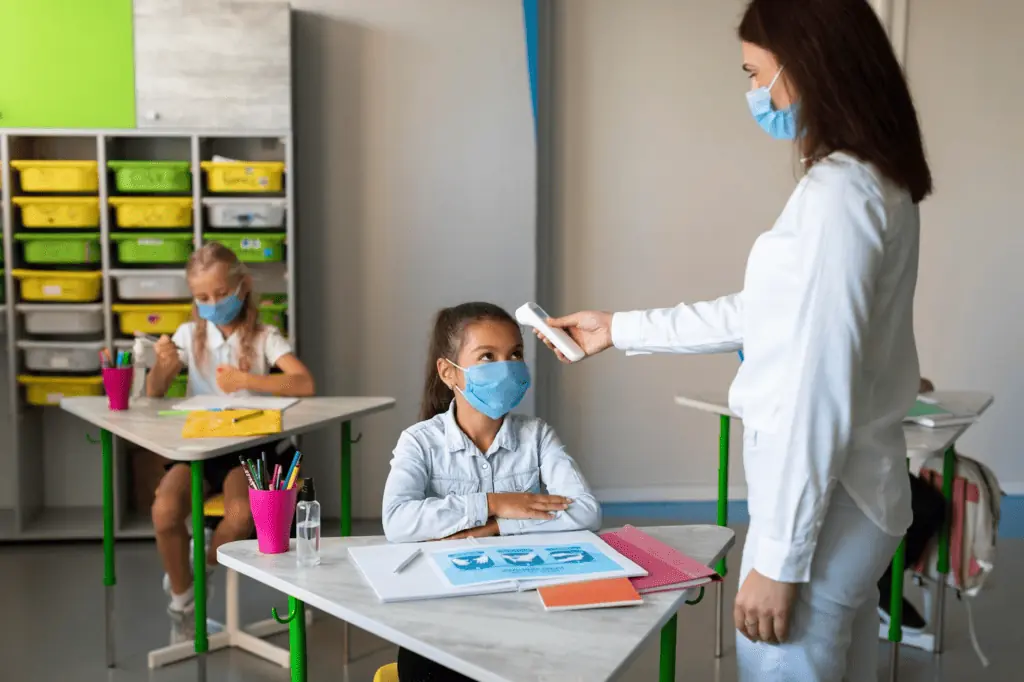
We all know that keeping our kids healthy is a top priority, and one essential part of that is the good school physical exam. If you’re wondering what to expect during this check-up or how to prepare your little one, you’ve come to the right place!
In this guide, we’ll walk you through the ins and outs of a typical school physical exam, making sure both you and your child feel confident and at ease. So, grab a comfy seat, and let’s dive into the world of school physicals together!
What is a School Physical Exam?
A school physical exam is a routine check-up that helps ensure students’ overall health and well-being. This examination is usually conducted by a healthcare professional such as a pediatrician or family doctor. The purpose of the school physical is to identify any potential health issues, monitor growth and development, and ensure that students are up-to-date on necessary vaccinations.
During a school physical exam, the healthcare provider will assess various aspects of a student’s health, including:
- Height and weight measurements
- Blood pressure and pulse rate
- Vision and hearing tests
- Examination of the heart, lungs, and abdomen
- Assessment of posture, joints, and overall physical development
The doctor may also ask about the student’s medical history, family health history, and any concerns the student or their parents may have. This information helps the healthcare provider identify potential risks and provide personalized recommendations for the student’s health.
In a nutshell, a school physical exam is a valuable tool to ensure that students are healthy and ready to learn. It’s an essential step in promoting a safe and healthy school environment for everyone. So, if it’s time for your child’s school physical, don’t hesitate to schedule an appointment with your healthcare provider.
Preparing for the Physical Exam
Getting ready for a school physical exam can be daunting, especially if you’re not sure what to expect. But don’t worry! We’re here to help you feel prepared and at ease. In this section, we’ll walk you through some simple steps to ensure your child is ready for their physical exam.
Gather Important Information
Before the appointment, take some time to gather any relevant medical information about your child. This may include:
- A list of their current medications (both prescription and over-the-counter)
- Any allergies or chronic medical conditions
- Their immunization records
- A summary of recent illnesses, injuries, or surgeries
- Any concerns or questions you have about your child’s health
Having this information handy will help the healthcare provider get a clear picture of your child’s overall health and make the exam as smooth as possible.
Dress Your Child Comfortably
On the day of the exam, dress your child in comfortable, easy-to-remove clothing. This will make it easier for the healthcare provider to perform the necessary assessments. Choose a short-sleeve shirt, as this can make it easier to check their blood pressure and administer any needed vaccinations.
Ensure a Normal Routine
There’s no need for your child to fast or avoid certain foods before a school physical exam. Encourage them to eat and drink as they normally would. However, if you know that a specific test, such as a blood test, will be performed, ask your healthcare provider if there are any dietary restrictions your child should follow.
Discuss Your Child’s Health
During the exam, the healthcare provider will likely ask you questions about your child’s overall health, lifestyle, and any concerns you may have. Be prepared to discuss topics such as:
- Your child’s diet and exercise habits
- Their sleep patterns
- Any recent changes in their health
- Your family’s medical history
- Any emotional or mental health concerns
Being open and honest with the healthcare provider will help them better understand your child’s needs and provide the best possible care.
Stay Relaxed and Supportive
Finally, remember that a school physical exam is a routine part of ensuring your child’s overall health and well-being. It’s normal for both you and your child to feel a bit nervous, but try to stay relaxed and remember that the healthcare provider is there to help. If you have any questions or concerns, don’t hesitate to ask. Your healthcare provider is there to support you and make sure your child is on track for a healthy school year.

What to Expect During the Exam
As a parent, you may be curious about what happens during a school physical exam and how it can impact your child’s health. In this section, we’ll provide a clear overview of the various assessments and procedures typically included in a school physical. So you know exactly what to expect.
Medical History Review
The exam usually begins with a review of your child’s medical history. The healthcare provider will ask you questions about the following:
- Your child’s past illnesses, surgeries, or injuries
- Any allergies or chronic medical conditions
- Your family’s medical history
- Your child’s immunization records
This information helps the healthcare provider understand your child’s overall health and identify any potential risks or concerns.
Physical Assessment
The physical assessment is a crucial part of the exam, as it allows the healthcare provider to check your child’s general health and development. Some common assessments include:
Height and weight measurement: This helps determine if your child is growing at a healthy rate and helps identify any potential nutritional concerns.
Blood pressure check: This ensures your child’s blood pressure is within a normal range.
Vision and hearing tests: These screenings help identify any potential issues with your child’s eyesight or hearing.
Heart and lung examination: The healthcare provider will listen to your child’s heart and lungs to ensure they are functioning properly.
Musculoskeletal evaluation: This involves checking your child’s posture, flexibility, and overall muscle strength.
Abdominal exam: The healthcare provider will gently press on your child’s abdomen to check for any tenderness or organ abnormalities.
Immunizations and Vaccinations
Depending on your child’s age and immunization history, the healthcare provider may administer necessary vaccinations during the exam. These vaccinations help protect your child from various illnesses and are often required for school attendance.
Discussion of Health and Well-being
Lastly, the healthcare provider will discuss your child’s overall health, including any concerns or potential risks identified during the exam. This is an excellent opportunity for you to ask questions and seek guidance on promoting your child’s well-being. Topics may include:
- Nutrition and exercise recommendations
- Sleep habits
- Mental and emotional health
- Safety and injury prevention
The healthcare provider may also provide resources or referrals for additional support if needed.
By understanding what to expect during a school physical exam, you can better prepare your child and ensure they receive the care they need for a healthy and successful school year.

Frequently Asked Questions
As a parent, you might have several questions about school physical exams and what they entail. In this section, we’ll address some of the most common questions to help you feel more informed and confident about the process.
Why are school physical exams important?
School physical exams serve as a crucial opportunity to assess your child’s overall health and well-being, identify any potential health concerns, and ensure they are on track for a successful school year. These exams also help fulfill school requirements and ensure your child is up-to-date with their immunizations.
How often should my child have a school physical exam?
The frequency of school physical exams may vary depending on your child’s age, overall health, and school requirements. Typically, annual exams are recommended, although some schools may require them at specific grade levels or for participation in sports or other extracurricular activities.
What if my child has special needs or a chronic medical condition?
If your child has special needs or a chronic medical condition, it’s essential to inform the healthcare provider before the exam. This will help them tailor the assessment to your child’s unique needs and provide any necessary accommodations or additional support.
Will my child’s privacy be respected during the exam?
Healthcare providers are trained to respect your child’s privacy and ensure their comfort during the exam. If your child is uncomfortable or has concerns about a specific assessment, encourage them to speak up and inform the healthcare provider.
What should I do if my child is anxious about the exam?
It’s normal for children to feel anxious about medical appointments. To help ease their worries, discuss the purpose of the exam and what to expect in simple, age-appropriate terms. Encourage your child to ask questions, express their feelings, and reassure them that the healthcare provider is there to help keep them healthy.
How can I support my child after the exam?
After the exam, take some time to discuss the experience with your child and address any concerns or questions they may have. If the healthcare provider provided any recommendations for improving your child’s health, work together as a family to implement these changes and promote a healthy lifestyle.
Embracing a Healthy School Year
School physical exams play a vital role in monitoring your child’s health and ensuring they are prepared for a successful school year. By understanding what to expect during the exam, preparing your child beforehand, and actively participating in the process, you can help create a positive experience for both you and your child.
Remember that your healthcare provider is there to support you and address any concerns or questions you may have. Together, you can work towards promoting your child’s well-being and fostering a healthy, happy, and thriving academic journey. Embrace the opportunity to be an active partner in your child’s health journey and pave the way for a bright and successful school year.